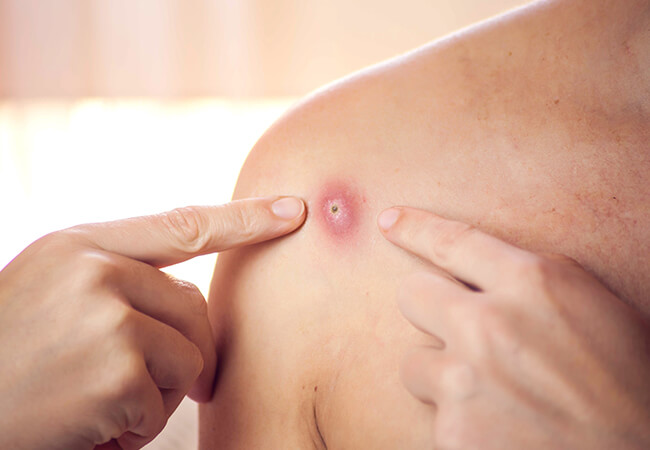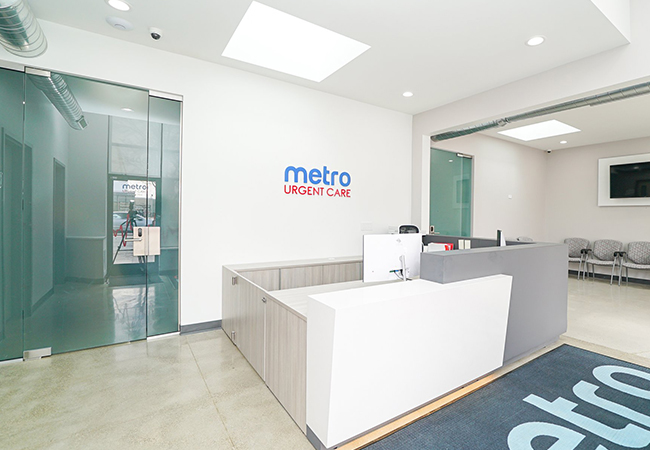

Worried about a cyst or an abscess? Visit us at Metro Urgent Care and get it checked and removed by our expert professionals.
BOOK APPOINTMENT - FULLERTON AVE BOOK APPOINTMENT - MONTROSE AVE BOOK APPOINTMENT - LA GRANGE
Cysts and abscesses are fluid-filled lumps on the body. However, cysts and abscesses are not medically the same. Cysts are usually painless, whereas abscesses are extremely painful and uncomfortable. An abscess forms when a cyst becomes infected or sore. While cysts and abscesses are not a medical emergency and can be treated at home, draining them requires medical expertise.
If a cyst or abscess is refusing to budge with home remedies and is causing discomfort, visit us at Metro Urgent Care in Chicago (Fullerton, Montrose) & La Grange, IL, for a check-up. Our team of professionals is experienced in safe aspiration and drainage of cysts and abscesses, offering instant relief from pain.
Cysts are caused by clogged oil glands or an infection around a foreign object in the body, such as a piercing. Abscesses result from inflammation caused when bacteria enter the skin through a puncture or when oil and sweat glands get clogged.
The following are two ways of treating cysts and abscesses:
Antibiotics are also often prescribed to ensure there is no infection. The drained fluid may be tested for malignancy. The patient may need to return for several more sessions for the complete removal of the cyst or abscess.
The tell-tale signs of an abscess are:

Your health and well-being are our priority, and we take great care in diagnosing and treating abscesses and cysts. Besides a dedicated team of providers with years of experience, Metro Urgent Care also has:
If you are worried about a cyst or are suffering from a painful abscess, don't wait. Visit our Metro Urgent Care walk-in clinic in Chicago (Fullerton, Montrose) & La Grange, IL, for a quick check-up and to discuss your treatment options with our expert healthcare professionals.
A boil is a painful, pus-filled bump usually caused by an infected hair follicle. An abscess is a larger collection of pus that can form deeper under the skin or in tissues, often requiring medical treatment.
If pus isn’t drained, the infection may worsen, causing swelling and pain. Sometimes the body absorbs it naturally, but medical treatment might be needed to prevent complications.
No, you should never try to pop an abscess yourself. Doing so can cause the infection to spread or worsen. Always seek medical care for proper treatment and drainage.
A bad abscess is large, red, swollen, and very painful, often with pus draining or skin breaking open. It may be warm to the touch and sometimes accompanied by fever or chills, indicating a serious infection needing medical care.
Recurring abscesses in the pubic area can be caused by factors like ingrown hairs, poor hygiene, friction, or underlying conditions like hidradenitis suppurativa or infections. It’s important to see a healthcare provider for proper diagnosis and treatment.